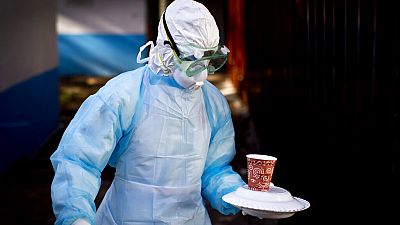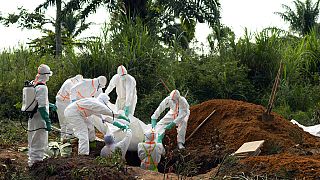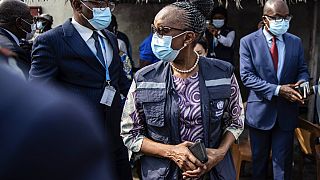Equatorial Guinea
The World Health Organization (WHO) said Thursday that the death toll from the Marburg virus epidemic in Equatorial Guinea has risen to 20, with Malabo reporting six more deaths in 10 days.
The cases of this haemorrhagic fever, which is almost as deadly as Ebola, have spread from the province of Kie-Ntem, where it caused the first known deaths on 7 January, to Bata, the economic capital of this small central African country, which is partly an island and partly a continent.
This expansion "suggests wider transmission of the virus" and requires "intensified response efforts to avoid a large-scale epidemic and loss of life," WHO warned in a statement.
"Between 11 and 20 March, eight cases were confirmed, six of which died," the Equatoguinean government said on its website, without establishing a total toll since the beginning of the epidemic. The last official death toll was 11 on 28 February.
"To date, there are 20 probable cases and 20 deaths," the WHO said, adding that the new cases are reported in the provinces of Kié-Ntem, Litoral and Centro Sur, which all have international borders with Cameroon and Gabon.
The epidemic is now raging in three of the four mainland provinces, from the east to the Atlantic Ocean. Bata, the port on the Gulf of Guinea with a population of about 250,000, is "affected", according to the government.
The efforts of the authorities, aided by the WHO, to contain the virus in Kié-Ntem have therefore not been enough. "Additional WHO experts (...) will be deployed in the coming days," the UN agency said, adding that it is also "helping Gabon and Cameroon to strengthen their preparedness and response to the epidemic.
Tanzania also announced on Tuesday the start of a Marburg epidemic, with five deaths.
The virus is transmitted to humans by fruit bats and is spread in humans through direct contact with bodily fluids of infected people, or surfaces and materials. The case fatality rate is up to 88%.
There is no approved vaccine or antiviral treatment for the virus. However, supportive care - oral or intravenous rehydration - and treatment of specific symptoms increase the chances of survival.
A range of potential treatments, including blood products, immune therapies and drugs, as well as candidate vaccines with phase 1 data are being evaluated, according to WHO.













01:43
Fuel tanker explosion kills at least eight people in Cameroon
Go to video
Ghanaian influencer accused romance scam targeting elderly Americans
Go to video
Six African women break barriers in Forbes 2025 power list
Go to video
US to deport 15 Kenyans convicted of crimes
01:00
Pix of the Day: December 11, 2025
Go to video
Kenyan court halts rollout of $1.6bn health deal with the United States